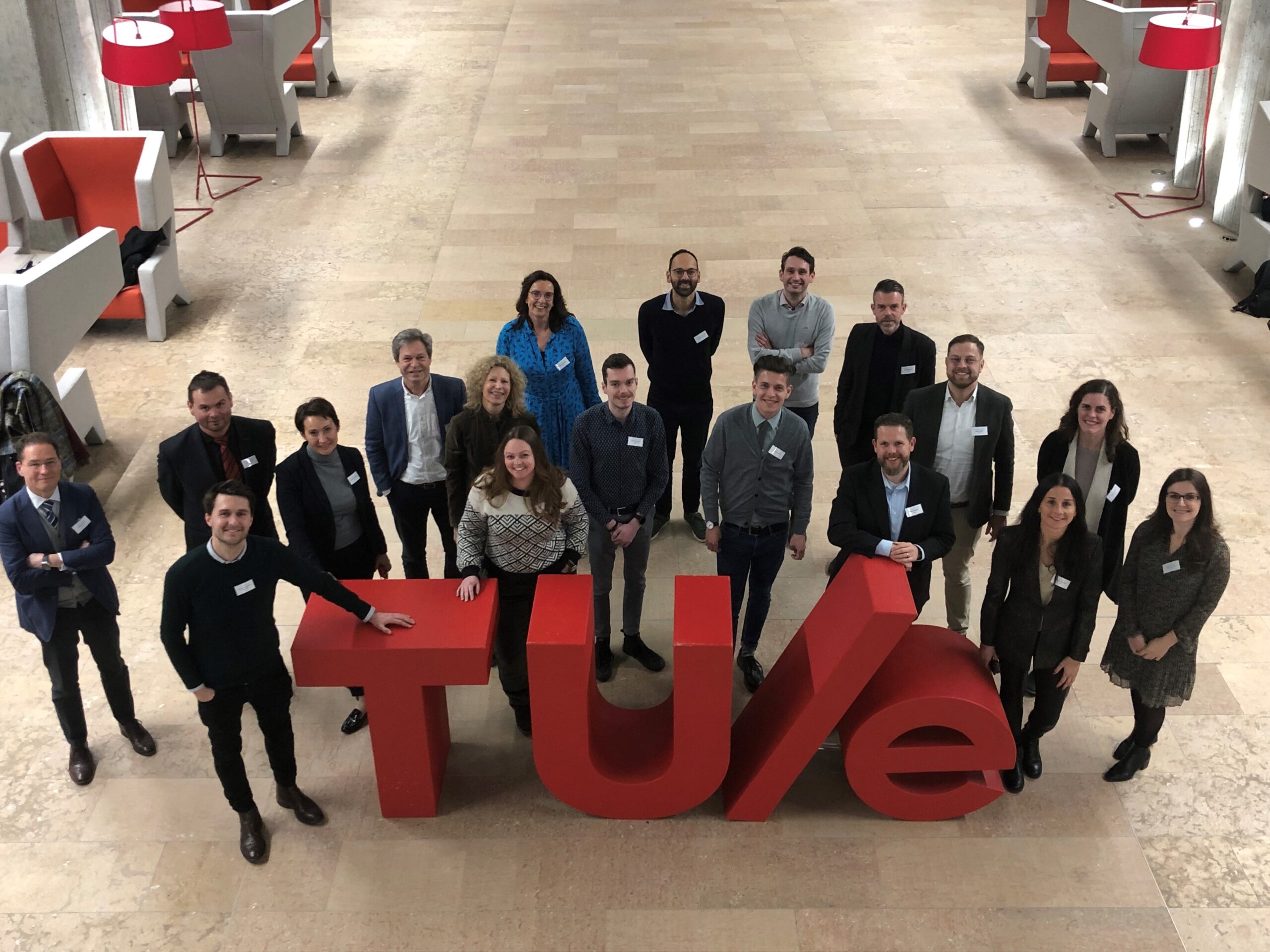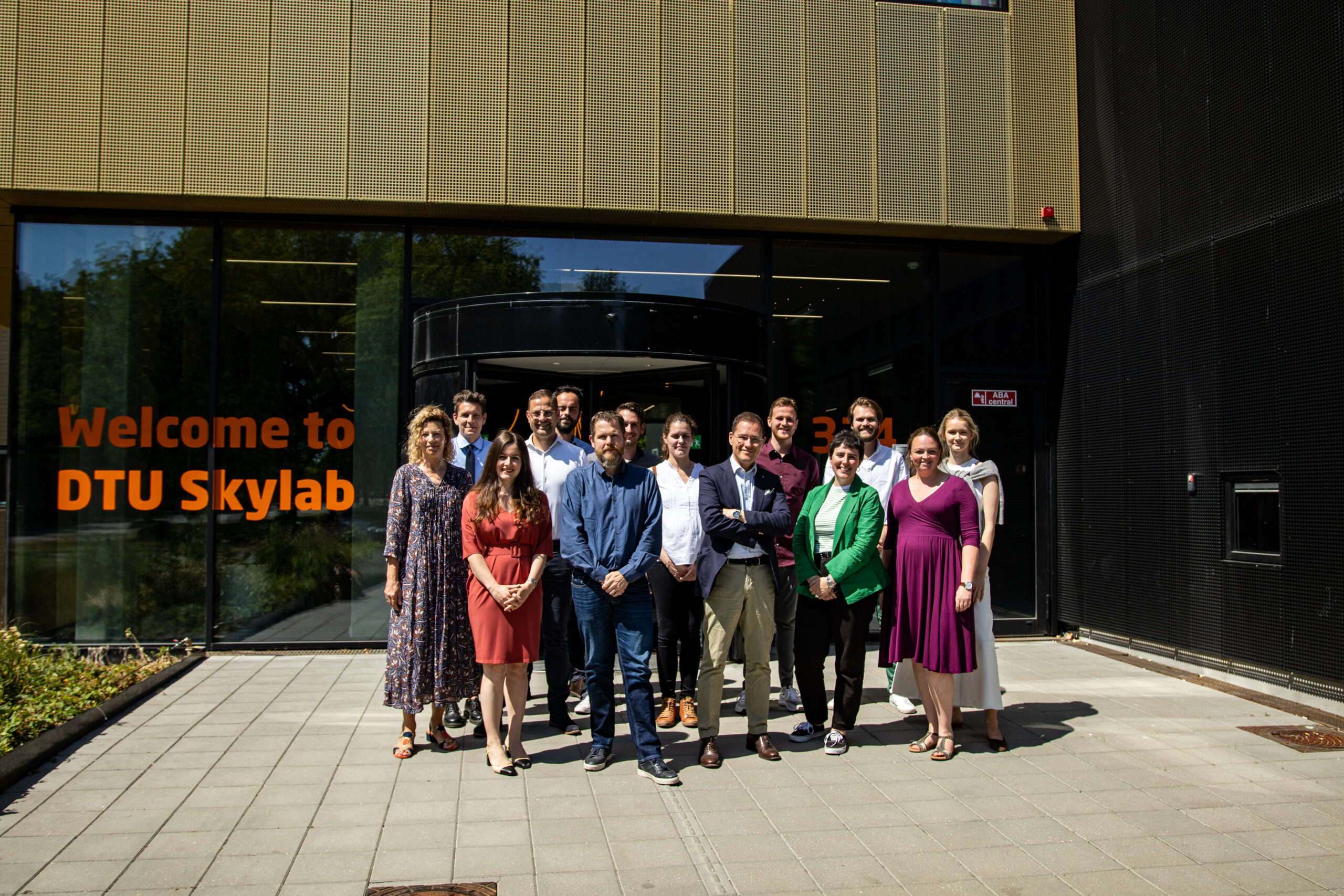November 2, 2023
A new collaboration on more connected, inclusive, and efficient innovation ecosystems
Eindhoven, Prague and Lyngby collaborate to build stronger European ecosystems
The European innovation scoreboard 2023 confirms that a combination of a well-educated, creative workforce and an exceptional tradition for public-private collaboration boosts innovation. This is the reason for the Netherlands and Denmark to be classified as innovation leaders. The Czech Republic is classified a moderate innovator but one of the fastest growing innovators with a performance catching up to the EU average.
In the EU project, COOPERATE, Eindhoven, Lyngby and Prague have joined forces to develop a strong model for European ecosystems. The consortium will design, test and implement a toolbox for successful ecosystems. The aim is to help and inspire all ecosystems in Europe to become even better and more innovative.

The partners gathered for a discussion at Eindhoven University of Technology. The consortium is composed of DTU Skylab, Science City Lyngby, Czech Technical University in Prague, IDEA Consult, STAMTECH S.R.L., Brainport Eindhoven, and Eindhoven University of Technology.
A new EU Project
Science City Lyngby has for over a decade demonstrated how collaboration across sectors can create value for the involved and the society at large. Based on the triple helix model they have forged collaboration between the local university, DTU, the business sector, and the public sector and laid the foundation for an innovation district.
“With the launch of the Cooperate project we aim to help all EU countries to perform better and be on par with the best. Innovation has been key to Denmark and the Netherland’s growth and prosperity for decades, and we hope to inspire others on how to be more innovative. The city of Prague has been chosen as a pilot project and together with our partners we are assessing how to provide the best assistance to help foster further innovation in Prague”, says Marianna Lubanski, CEO at Science City Lyngby.
The project will test and develop a common platform for collaboration and best practice sharing across borders to enhance cooperation and knowledge sharing across Europe.

DTU Skylab is a partner in the Cooperate project along with Science City Lyngby and Eindhoven University of Technology. Here, the stakeholders are gathered for an initial meeting at DTU Skylab. (Photo: Science City Lyngby)
Skylab – DTUs’s living lab for innovation
Science City Lyngby has a close collaboration with DTU Skylab and both organizations will visit Prague next year to help further develop a world class ecosystem. After Prague, the plan is to invite two other countries to participate in a similar process. The cities will be chosen based on their position on the score board, i.e. number of startups, the size of invested venture capital, and the number of patents initiated in the realm of innovation.
“We have had great success with our approach in Lyngby, but there’s no guarantee it will be successful everywhere. That’s why the handbook is primarily meant to be an inspiration. Eindhoven has a different approach, receiving regional support, which we haven’t had the opportunity for. The overall idea is to facilitate new ideas” elaborates Marianna Lubanski.
The COOPERATE project is funded by Horizon Europe, the European Commission´s Framework Programme for R&I, under the WIDERA Work Programme.
Link to the original story in Danish (page 13)